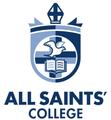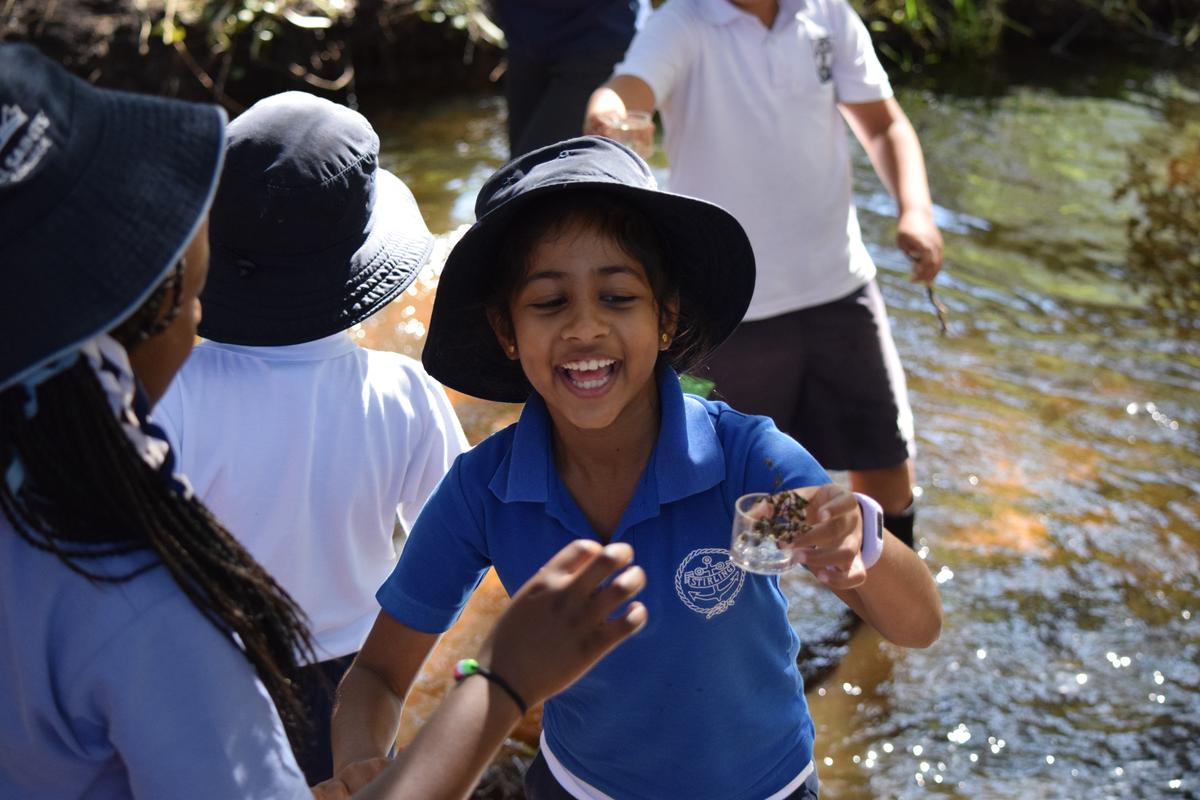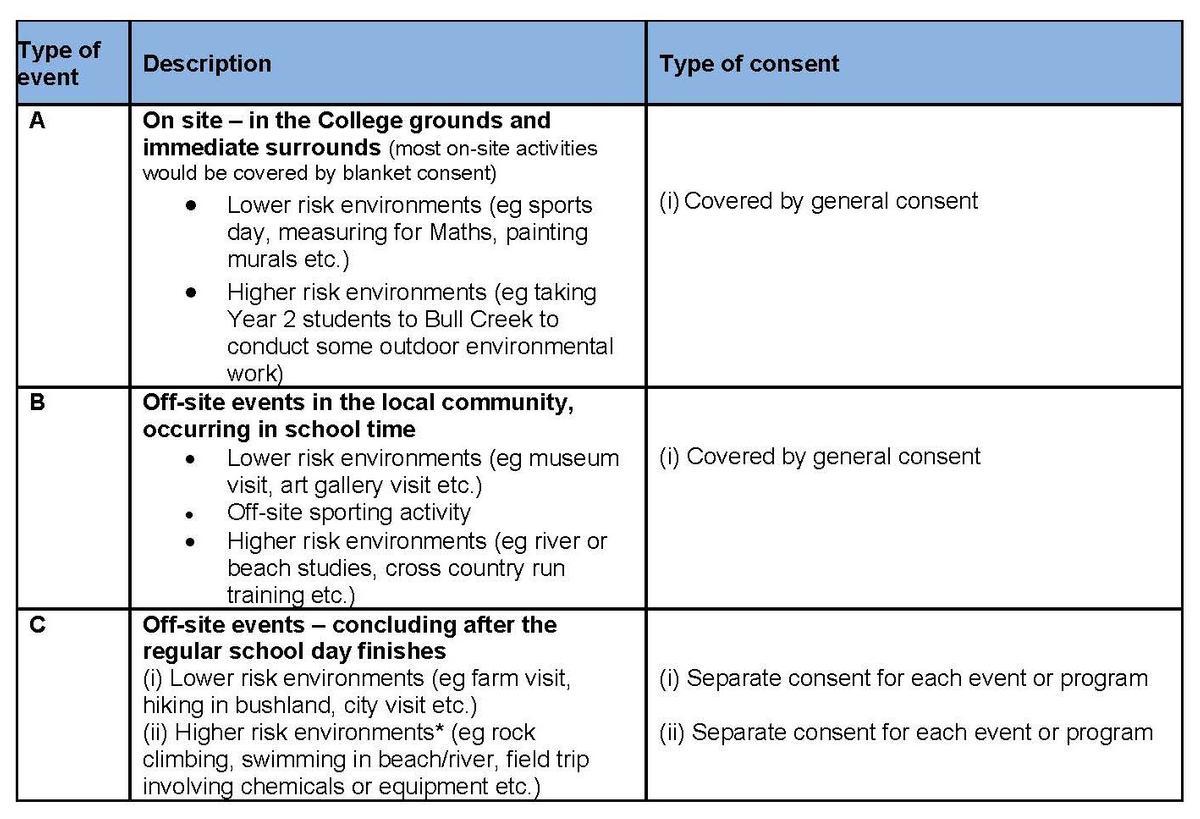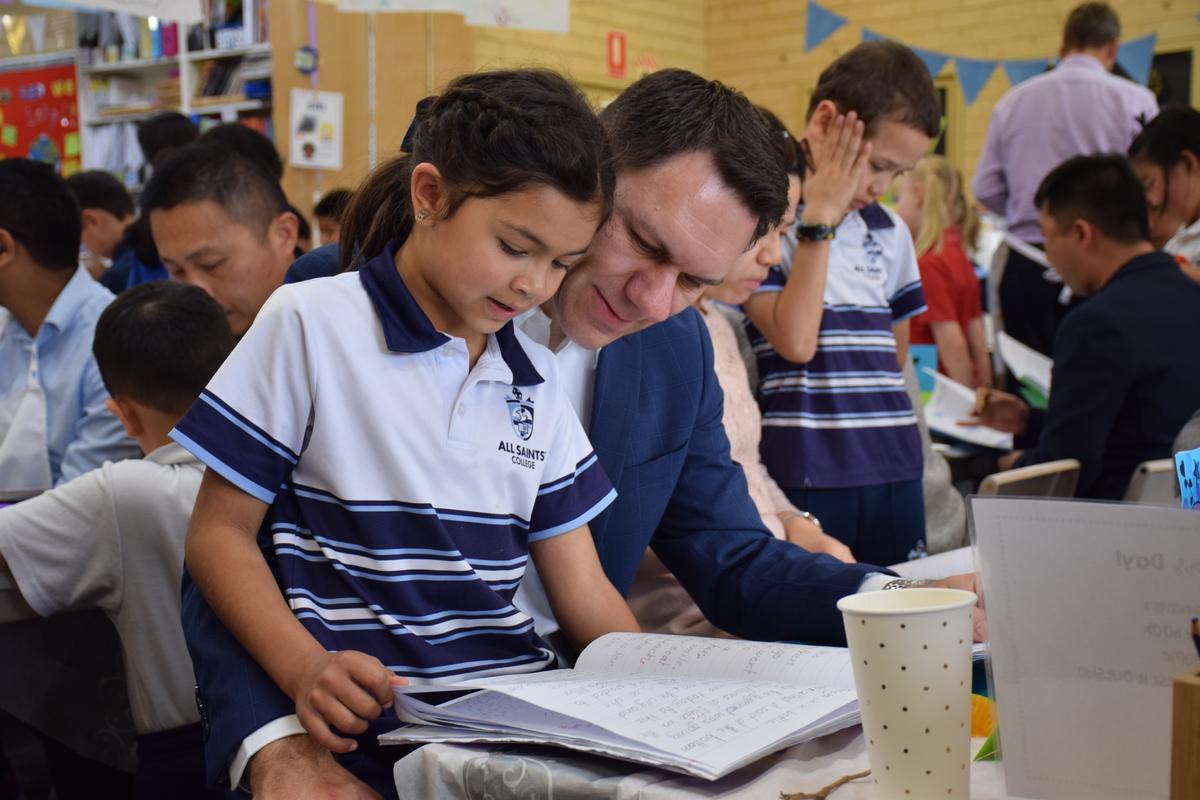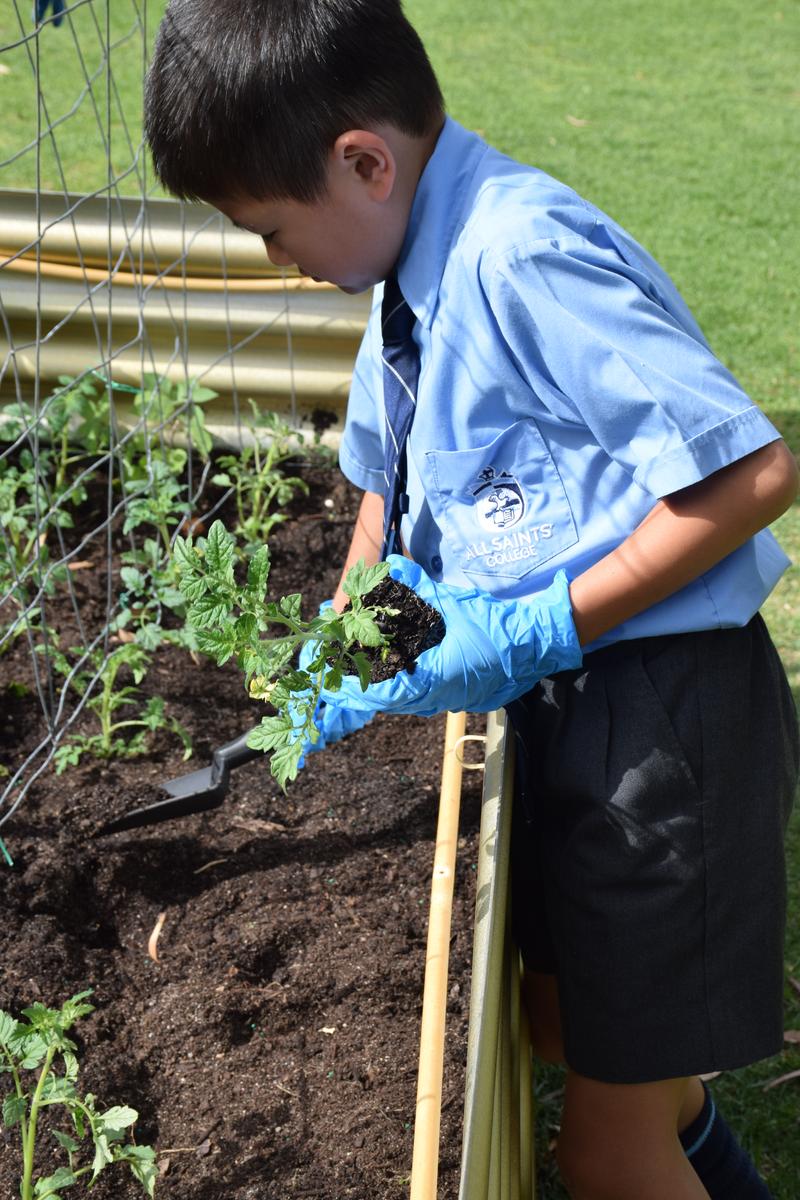Curriculum
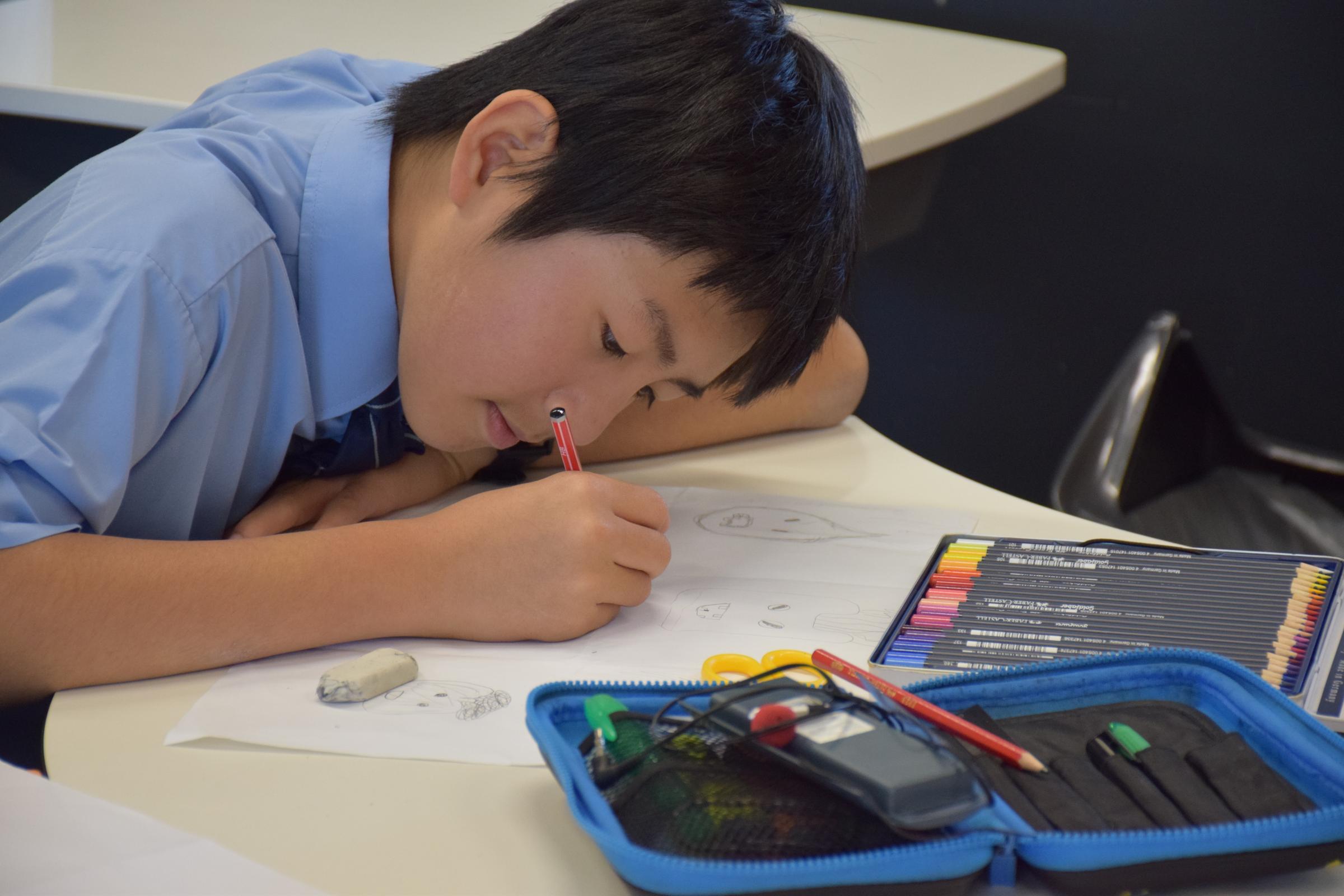
At the start of each term, an overview of the year level curriculum program is placed on SeeSaw. Class timetables are available on SEQTA. The programs are differentiated within the classroom to account for the needs of individual children.
Learning Intervention and Opportunities
In the event that a child is achieving well above or below the academic expectations of their year level, or having difficulty accessing the curriculum, their parents are notified and a meeting is arranged with the class teacher. In partnership with families, a plan will be put in place to address the situation, to optimise learning for the child.
Referrals
On occasion, teachers in consultation with parents refer children to visit specialists – such as a speech therapist, occupational therapist, physiotherapist, educational psychologist, audiologist, optometrist or paediatrician – to identify specific learning needs and assist them to access the curriculum appropriately. College staff may also be involved, in consultation with the Dean of Junior School, in assisting to make adjustments to your child’s learning and teaching program. When referrals are made, it is important that there is close communication between the teacher, the parents and the specialist. Any specialist reports need to be made available to the College to inform the teachers, who are then able to make adjustments to the child’s learning program.
Assessment
Assessment is an essential element of effective teaching and learning programs. Teachers regularly use in-class observations, informal and formal assessments to inform their programs, to be responsive to the child’s needs, to provide feedback and to monitor their students’ progress. These assessments are used in conjunction with the College’s annual standardised testing programs using ACER and ICAS tests, as well as national NAPLAN tests in Years 3, 5, 7 and 9. Our students are taught self-assessment, goal setting and reflection skills.
Excursions and Outdoor Learning Programs
Off-campus educational and outdoor learning activities are organised for students in Kindergarten – Year 6.
In 2020 we have adjusted the activities that will be covered by the annual general consent from our families. This will reduce the frequency of requests for consent for educational activities as shown in the table below.
To streamline the administrative requirements for each activity, the College asks parents of all students to complete the general consent form which will be emailed via EdSmart to cover all excursions and cocurricular events for the year.
Details of specific events involving your child, including any costs, will be emailed to you in the lead-up to an event to ensure you remain aware of your child's involvement. You will be able to withdraw your consent for participation in an activity at this time.
Camps, trips and tours will continue to require the completion of an individual permission slip and the completion of current medical status.
General consent must be provided afresh for the new year, even if it has been provided before, and it is essential that the College has the most up-to-date medical information for your child/children.
All incursions and excursions conducted by the College are subject to approval from the Leadership Team following a risk assessment process.
Toys and Items of Interest
Students are encouraged to bring in items of interest relevant to a topic being studied in class. Other toys and personal items are to remain at home to avoid being lost or damaged at school.
Home Learning Policy
Connecting Learning at Home and School
The College’s Strategic Plan: Benang, includes Goal 2: Learning. Objective 2.1 describes our commitment to developing a broad, engaging and responsive curriculum that meets the needs of our diverse student population.
The Years 1–6 homework grid links learning at school with learning that occurs in other venues. This includes Family/Community Service, Service Learning, Nature Connect, Cocurricular Activities, Lifelong Learning and This Week’s Task.
We suggest the following time allocation:
Years 1–2 15–20 minutes per night, four nights a week
Years 3–4 20–30 minutes per night, four nights a week
Year 5 30–45 minutes per night, four nights a week
Year 6 45–60 minutes per night, four nights a week
However, in response to mounting evidence about the importance of unstructured time for children to play, explore and create, we do not want to erode this time and so request that you consider a balance that suits your family and encourage your child to monitor their own time spent each night.
Reading every day is an expectation. Reading can be part of this time allocation. Many researchers have shown the benefits of reading aloud to children continue well into their teenage years. This can be part of home reading.
To facilitate a love of literature and reading, Pre-Kindergarten, Kindergarten and Pre-Primary students are encouraged to take home book kits to enjoy reading with their parents. From Term 2, Pre-Primary students begin to have early readers sent home.
Home Learning – Rationale behind the grid
The Home Learning Grid is a framework that the teachers use to set meaningful homework for their students. The categories included in the grid are explained below:
The intention of Family/Community Service is to ask students to perform an appropriate task or chore at home that they do not normally do, but which would benefit their family, eg setting the table, making their bed, taking out the rubbish, unpacking the dishwasher. Doing chores helps to develop self-sufficiency and a sense of responsibility. Importantly also, children acquire the understanding that a feeling of accomplishment follows a job well done, thus building self-esteem. It may also involve doing something that would benefit their community, eg if the child belongs to a group or club, there may be jobs that they could do in that setting. This may be more appropriate for older students.
The intention of the Nature Connect box is to encourage a connection with nature. One consistent message from different fields of expertise is that spending time in natural environments enhances a child’s physical, sociological and psychological development. Students can simply place a tick in the box if they did something that involved being out in nature, eg a picnic in a park, bike ride, swim in the ocean or river, fishing, gardening. From time to time teachers may make suggestions in this area.
The Cocurricular Activities box is designed to help students see that learning is lifelong and occurs in many and varied environments while honouring the diversity of learning in which students are involved. This box requires students to tick which ones apply to them or they may add their own.
The Lifelong Learning box encourages students to foster their intellectual curiosity and pursue something of interest to them. Opportunities for sharing with their peers also help develop self-confidence. It may involve a student talking to someone or completing a written piece. Again, the time requirements will vary, depending on your child’s year level.
Inquiry Learning
During an inquiry, our students are often inspired to pursue further knowledge, work on a project plan or progress a task for their group. As part of the Inquiry process in Years 3–6, teachers will allocate time at the end of a day for students to set their own out of school task. Our aim is for the student to take ownership of t
